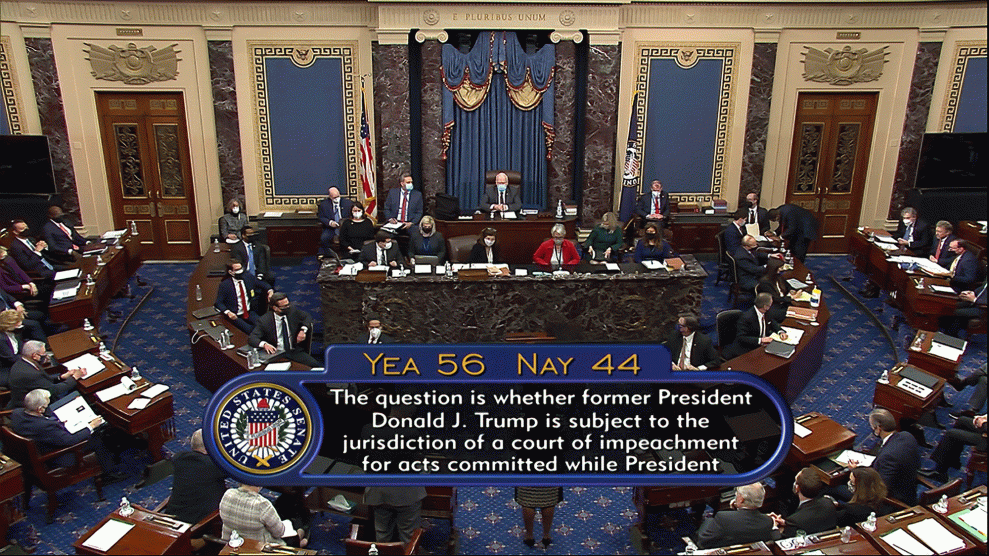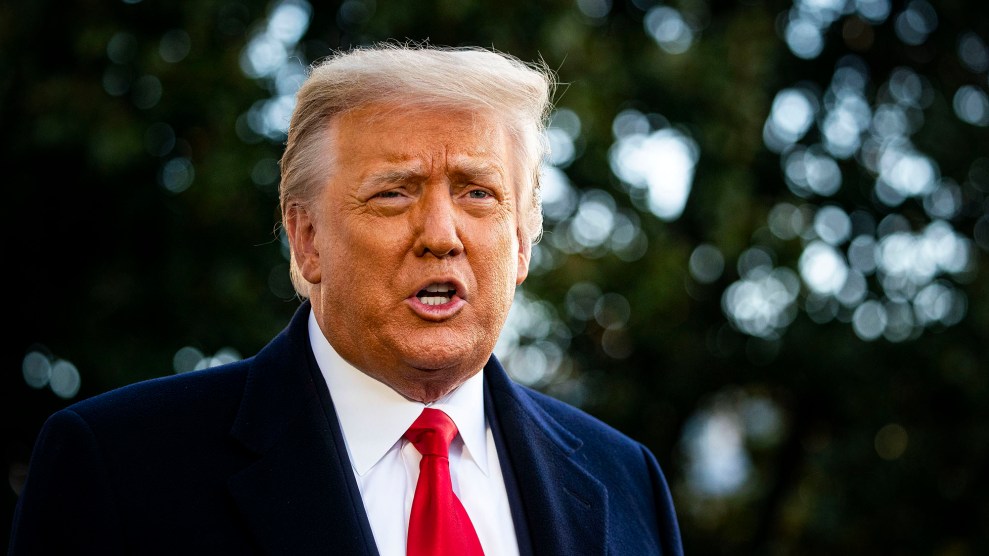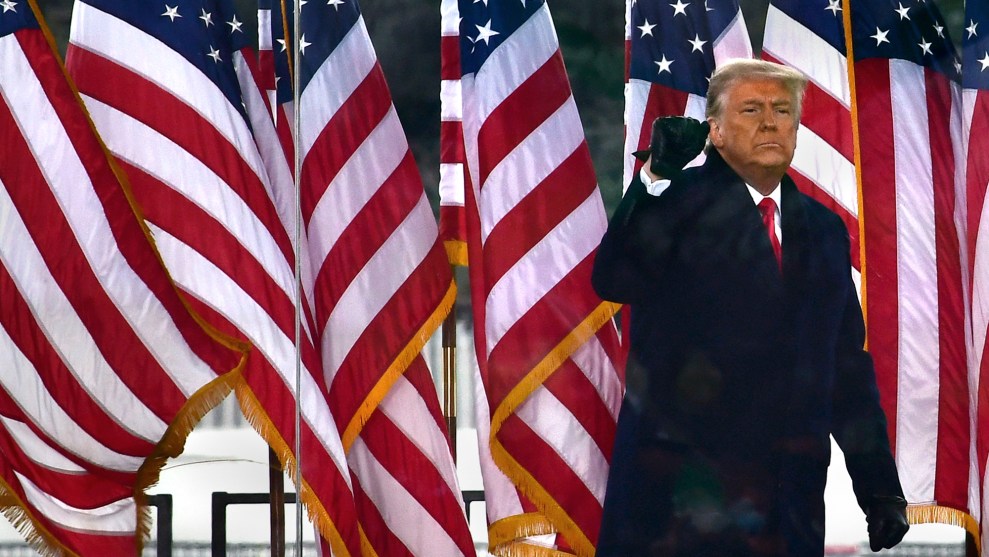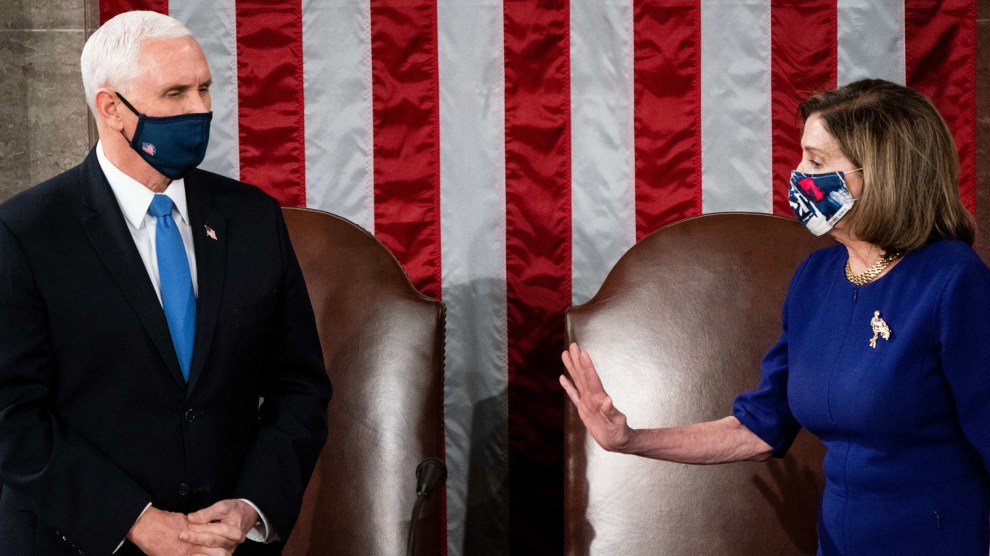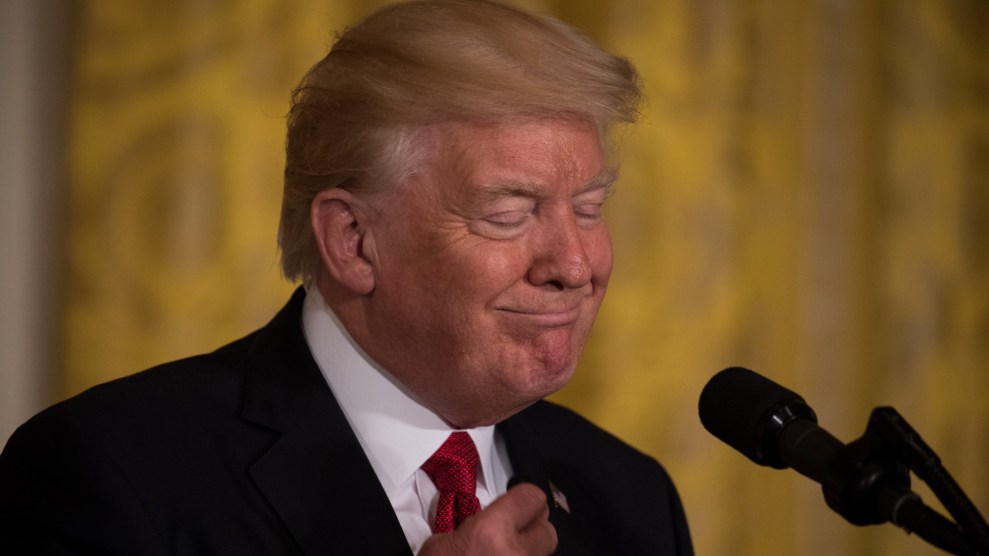
Cheriss May/Zuma
As we all know, once again, former President Donald Trump is on trial. But let’s be clear at the onset, this is not a criminal proceeding, but a political one. After the former president incited a mob to attack the Capitol to halt the certification of Joe Biden’s victory, the insurrection he inspired led to the death of five people, including one police officer, and dozens of injuries including stab wounds and cracked ribs, and two deaths by suicide. On January 13, Trump was impeached once again by the House, this time for inciting the January 6 insurrection. Among his other notable accomplishments, he’s the only president to have been impeached twice.
But here is where this political trial has strong parallels with what happens in the criminal justice system. When all is said and done, the former president and insurrection inciter is likely to join the long list of wealthy white men who’ve walked away from their crimes without a guilty verdict, and without facing any real consequences for what they have done.
What’s happening in the Senate, as the House impeachment managers present compelling and powerful evidence of the former president’s culpability for the deadly events that transpired on January 6, can be seen as a microcosm of what happens when wealthy white people are put in the position of holding one of their own accountable. Even with a shoddy defense and clear evidence of wrongdoing, the facts of the case matter much less than the identity of the perpetrator.
I have watched all of the events of January 6 and its aftermath, and yet the House managers’ presentation of a single terrifying narrative revealed the true nature of the danger—and how much worse it would have been were it not for law enforcement officials seeking to protect legislators, quick-thinking congressional staffers, and frankly, no small measure of luck. If the days and weeks after the attack felt like a painful slow drip, the Democrats’ presentation was a firehose.
On Tuesday, they showed a 13-minute video that took viewers methodically through the events of January 6, beginning with Trump’s comments at his “Stop the Steal” rally that preceded the attack. On Wednesday, the impeachment managers introduced images that had never been seen before, including security footage that showed US Capitol Police Officer Eugene Goodman directing Sen. Mitt Romney (R-Utah) away from the mob, likely saving his life. Goodman is also notable for having led the mob away from the Senate doors on the day of the attack. Radio calls were played from police officers who described the rioters assaulting them with metal poles and other weapons. It also showed how many times the mob came dangerously close to lawmakers, including 100 feet away from where former Vice President Mike Pence was sheltering with his family. Throughout their rampage, the mob threatened Pence, House Speaker Nancy Pelosi, and other lawmakers with violence, even death.
The criminal justice system historically has failed to hold wealthy, white, and well-connected men accountable for their transgressions. (Though in recent years, the #MeToo movement has made strides to hold privileged men accountable.) Studies have shown that prosecutors are more likely to hand down harsher sentences for drug offenses for people of color, despite the fact that the drug usage rate is similar among racial groups. When it comes to murder, prosecutors are more likely to pursue death sentences when the victim is white, even though Black people are just as likely to be the victims of murder.
In much the same way as the system tends to defer to the perpetrator when egregious crimes are committed by the privileged, so too have some Republican senators when crimes were committed by their president. On Tuesday, the Washington Post reported that Sens. Rand Paul (R-Ky.), Rick Scott (R-Fl.), Marco Rubio (R-Fl.), and Tom Cotton (R-Ark.) averted their eyes from the screen during the first video played by the House impeachment managers that showed the violence unfolding during the attack. On Wednesday there were reports that some GOP Senators—who are supposed to be playing the role of impartial jurors—simply left the Senate floor.
Some GOP senators have opted to watch the proceedings from their cloak room. We can’t see them in there so it’s unknown if they were watching it.
— Manu Raju (@mkraju) February 10, 2021
Sen. Josh Hawley, one of the main proponents of the lie that the election had been stolen, reportedly relaxed with his feet up on his desk as the impeachment managers played footage of the chaos that day. No matter how compelling the case for Trump’s guilt the House Democrats present, it’s a foregone conclusion that the chances of the Senate convicting the former president with a two-thirds majority remain infinitesimal. This would require 17 Republicans to have the courage to break their loyalty to Trump. Our broken and ineffectual Senate probably couldn’t even get two-thirds majority support for the idea that the sky is blue.
Let’s interrogate those forces that conspire to enable Trump to get off scot-free. Spoiler alert: They’re the same forces that typically accommodate white supremacy. In a moment of unusual truth-telling, Trump was actually correct to bill himself as the president of “law and order”— if you consider that “law and order” has just been another way of sanctioning the subjugation of Black people, also known as white supremacy. Or, put simply, “Consequences for thee, not for me.”
How badly does the Republican Party not want Trump to face the consequences of his hideous incitement? Senate Republicans tried to stop the trial from even happening by holding a vote on whether the trial was constitutional. A slim majority voted yes, it was perfectly constitutional to try a former president. So on the first day of the trial, the Senate debated the very same topic. Then, there’s the “ignorance is bliss” approach. On the third day of the trial, CBS reported that there were many Republicans who had decided just to skip the unpleasantness the impeachment managers were doling out. (Much like so many claimed not to have heard or read some of Trump’s most appalling statements or tweets.)
There were "at least 15 to 17 empty Republican seats" during part of Thursday's impeachment trial arguments, @edokeefe reports https://t.co/YubPpuDO6i pic.twitter.com/fQLS8uqiWr
— CBS News (@CBSNews) February 11, 2021
One long tradition in the miscarriage of justice against Black defendants has been the appointment of often shamefully incompetent defense attorneys. In capital punishment cases, whether a defendant will be sentenced to death typically depends on the quality of their counsel more than anything else. Even in non–death penalty cases, the quality of lawyer can make a world of difference between a short sentence and a long one. But for those lucky enough to benefit from white privilege, we see that a pathetic defense doesn’t really matter.
After rigorous and scathing opening statements from House impeachment managers, Trump’s defense lawyer, Bruce Castor, took to the floor. His meandering, 48-minute opening statement bore a striking resemblance to Trump’s stream-of-consciousness rants, but without the authoritarian eloquence. There was nothing coherent about this defense attorney. The Democrats had made a powerful argument about why the trial was well within the confines of the Constitution, but Castor’s counter to this argument was tantamount to his declaring that he had a bowl of cereal for breakfast.
His performance did have the benefit of inspiring in some Republican senatorial fans of Trump a rare spasm of self-awareness. These are all elected officials who have utterly debased themselves as Trump supporters. Even though they were once concerned about his toxicity, they all became his most ardent fans. Which perhaps explains their disappointment in the less than vigorous defense. “I thought I knew where it was going, and I really didn’t know where it was going,” Sen. Lindsey Graham (R-S.C.) said afterward, speaking for nearly everyone watching at home.
Even @LindseyGrahamSC says the Trump legal team was hard to follow:
"I thought I knew where it was going, and I really didn’t know where it was going."
— Seung Min Kim (@seungminkim) February 9, 2021
“The first lawyer just rambled on and on and on and didn’t really address the Constitutional argument,” Sen. John Cornyn (R-Texas) complained. “That was it was not one of the finest I’ve seen.”
Lots of criticism from Republicans over Trump attorney Castor. John Cornyn:“And then I thought the President's lawyer the first lawyer just rambled on and on and on and didn't really address the constitutional argument. That was it was not one of the finest I've seen.”
— Manu Raju (@mkraju) February 9, 2021
“I don’t think the lawyers did the most effective job,” allowed Sen. Ted Cruz (R-Texas), who, to be clear, was leading the “stop-the-steal” charge in the Senate.
“I don't think the lawyers did the most effective job," said Sen. Ted Cruz to @karoun when asked about Trump's lawyers. He added that Rep. Jamie Raskin was "impressive" and a "serious lawyer."
— Manu Raju (@mkraju) February 9, 2021
And yet, even as inconsistent as Castor’s word vomit was, it did not cause any of Trump’s fan base to question their positions, much less go so far as to look at the evidence before them. The inadequate defense was inadequate because what Trump did was indefensible. Castor’s performance just highlighted the problem at hand. So as dug into their positions as they were, nothing could convince Republicans that the trial was, in fact, constitutional.
These Republican senators know that Castor and David Schoen, Trump’s other defense lawyer, did not present the argument that the trial itself was unconstitutional effectively. Sen. Bill Cassidy (R-La.) was the only Republican to switch his vote at the end of the four-hour session, and joined five other Republicans who said the Constitution allowed for the Senate to try a former president. Forty-five Republicans held their ground and voted no—the proceedings were not constitutional—including those mentioned above. For them, the basic argument to absolve Trump of any responsibility boils down to this: Donald Trump, and by extension everyone like him, is above the law. Punishment, accountability, and consequences only rarely apply to rich white men.
This commitment to upholding the racial hierarchy and the continued solidarity Trump inspires boggles the mind. It is encapsulated by a comment from Sen. Mike Lee (R-Utah) on the eve of the impeachment trial. “Look, everyone makes mistakes,” he said on Fox News. “Everyone is entitled to a mulligan once in a while.” There’s a lot going on here. First, this is an exquisite pander to the former golfer-in-chief who, no doubt, was glued to Fox News. But then, let’s look at the metaphor. According to the New York Times, in golf, a mulligan means “allowing an opponent to take a second shot after an errant first swing without incurring any penalty on the official scorecard.” This is the language of elites enjoying themselves at country clubs. What a perfect shorthand for generations of white privilege.
Despite all the riveting evidence, most Republican senators are not pretending they care about the fact that Trump could be guilty of inciting an insurrection. I’ve watched countless videos of white police officers shooting, killing, and injuring people of color. At least, those law enforcement officials, when accused of racism or wrongdoing, have had the decency to argue that they believed they were doing their jobs. But Team Trump isn’t even bothering to defend what he’s accused of. It’s almost as if they’re saying, yes, he incited an insurrection but let’s move on.
Like most of us in this country, I remember the events of January 6 clearly. Since then, I’ve watched innumerable images of the insurrectionists using flag poles and their firsts to attack police officers, parade around the Capitol building chanting death threats, brandishing Confederate flags, and rifling through lawmakers’ desks. And still, watching elected officials weave it all together in one place, it’s impossible to imagine how anyone could watch these presentations and not walk away secure in the fact that Donald Trump must face consequences?
Enter Sen. Lindsey Graham. Once a fierce critic of Trump before he won the election, he became one of his most craven lackeys and enablers. But even Graham, on the night of the insurrection, gathered his courage to disavow the president. “Count me out,” he said. “Enough is enough.” Within days, he returned to his favored supine position as Trump supplicant. The presentations, he said, only deepened his commitment to the former president.
The 'Not Guilty' vote is growing after today.
I think most Republicans found the presentation by the House Managers offensive and absurd.
— Lindsey Graham (@LindseyGrahamSC) February 11, 2021
Only those Republican senators committed to whiteness and wielding power could sit through this and vote to acquit, much less demean the heartfelt and urgent presentation by their House colleagues as “offensive and absurd.” But why should they behave any differently than they always have? Our flawed and racially biased system of justice has never required them to.

